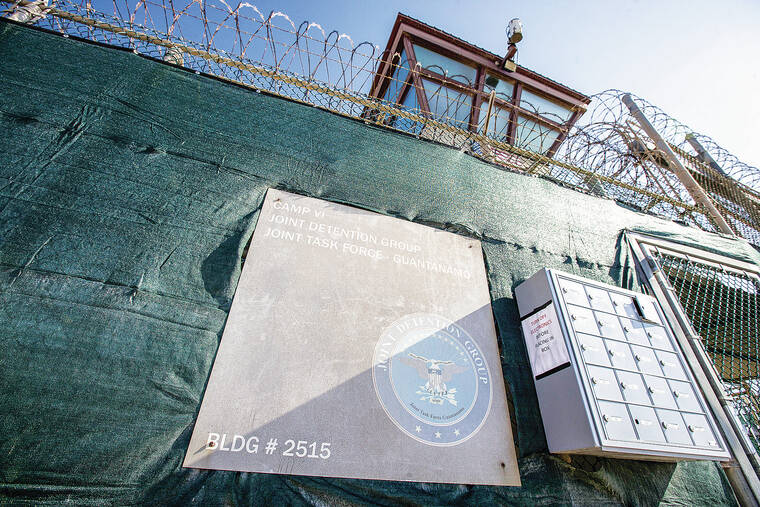Military judge to rule on CIA torture program in Sept. 11 case
GUANTANAMO BAY, Cuba — A defense lawyer asked a military judge Monday to dismiss the Sept. 11 conspiracy charges against a Saudi prisoner who was tortured in CIA custody, describing the secret overseas prison network where the man was held as part of a “vast criminal international enterprise” that trafficked in torture.
Defense lawyers in the case have said for years that the case should be dismissed based on a rarely successful legal doctrine involving “outrageous government conduct.”
ADVERTISING
On Monday, Walter Ruiz became the first defender to present the argument to a military judge on behalf of Mustafa al-Hawsawi, who is accused of helping the Sept. 11 hijackers with money transfers and travel arrangements.
The interrogation and detention program as carried out on his client so “shocks the conscience,” he said, that Hawsawi should be dropped from the conspiracy case.
In a nearly daylong presentation, Ruiz used government documents to argue that the prisoner was sexually assaulted in his first month of detention, waterboarded by CIA interrogators without permission, deprived of sleep and kept isolated in darkened dungeonlike conditions starting in 2003.
In order to build their cases against former CIA prisoners, prosecutors had so-called clean teams of federal agents reinterrogate the defendants at Guantánamo Bay in 2007, without using or threatening violence.
But “no matter how many cleaners they bring into this court, they cannot clean it up,” Ruiz said. “It smells and reeks of coercion, torture, brutality and depravity.”
The CIA’s black site program was established by the administration of President George W. Bush in the aftermath of the Sept. 11, 2001, attacks and was shut down by President Barack Obama. The timing of the argument suggests that Col. Matthew N. McCall, the fourth judge to preside in the case, will be able to decide the potentially case-turning issue before he retires later this year. The judge has a busy schedule of testimony about the CIA program and the FBI role in it this month and later in the year.
To make his argument in open court, Ruiz devoted hours to showing the judge — but not the public — secret documents. He accused the U.S. intelligence community of over-classifying information to hide “dirty secrets.”
One in particular, he said, “would not necessarily implode the national security of the United States. But certainly it would be embarrassing. And ugly. And shocking.”
Ruiz argued that, despite the Bush administration’s effort to “legalize torture” through Justice Department memos authorizing waterboarding and other “enhanced interrogation techniques,” the record showed that Hawsawi’s captors “exceeded, ignored and violated even those specific guidelines.”
The CIA, for example, has never acknowledged the waterboarding of Hawsawi. But in April 2003, his second month of custody, according to a Senate study, Hawsawi “cried out for God” while he was subjected to a waterboarding technique at a particularly brutal CIA prison in Afghanistan with the code name Cobalt.
Some violations were “outright vengeance or retribution,” Ruiz said. Others were a result of a lack of training and guidance, or what Dr. James E. Mitchell, the psychologist who waterboarded prisoners for the CIA, testified years ago constituted “abusive drift.”


